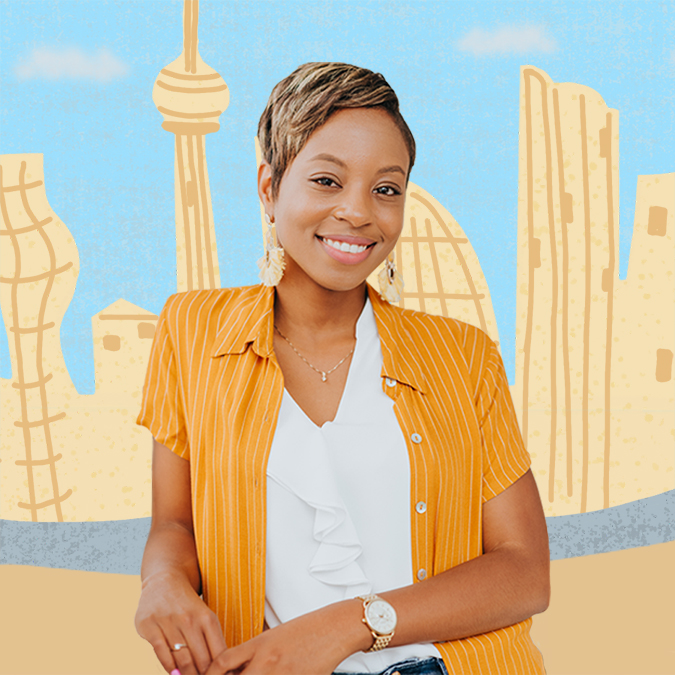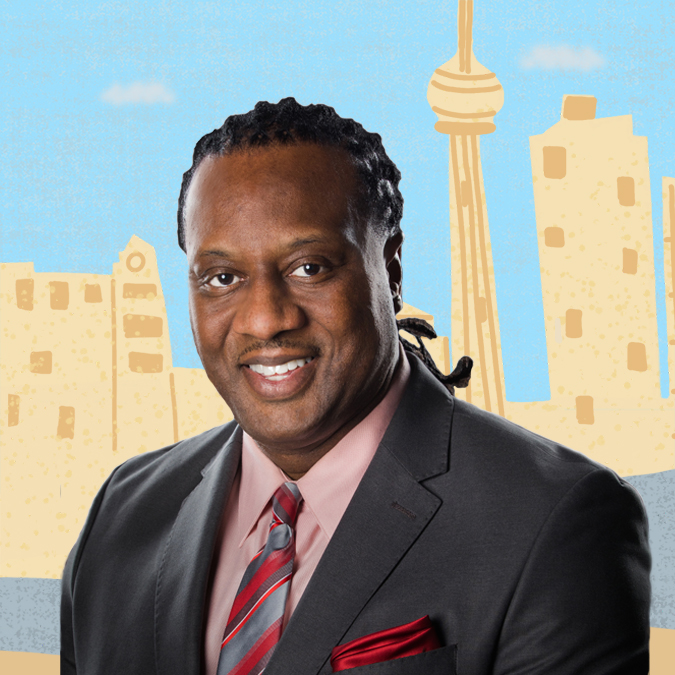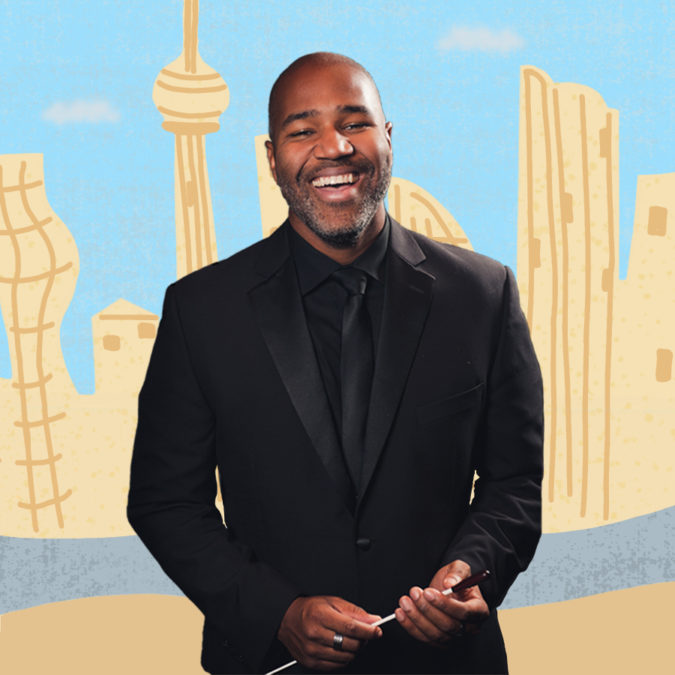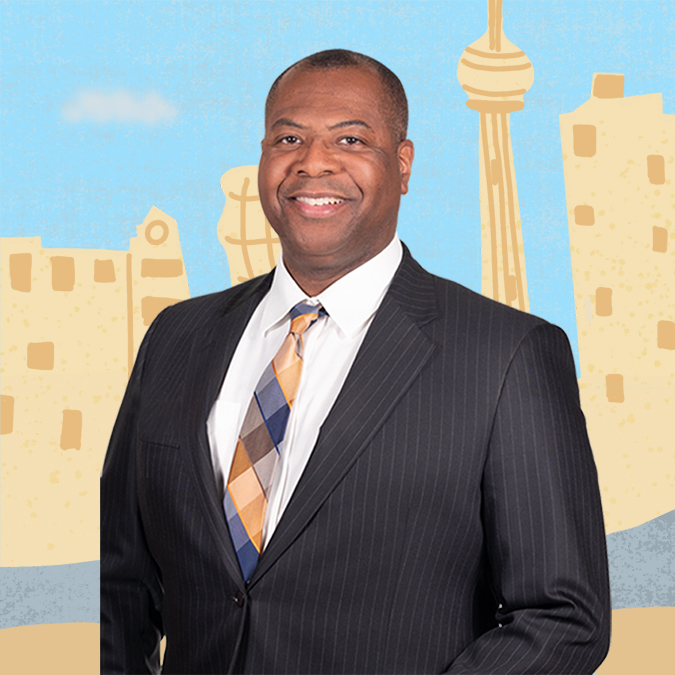
4 Black changemakers in the GTA share what they really want to tell youth this Black History Month
Black History Month is a time to reflect on the struggles and strengths of the Black community. And while it is important for everyone to learn about past injustices such as slavery, there is also a desire to learn about current-day Black changemakers, to talk about how far the Black community has come and to look to the future. We invited four Black community leaders in Toronto and the GTA to talk about Black History Month and share what they want to say to Black youth this February.

“I’m definitely aware of those who came before me.”
Chanèle McFarlane is a TEDx speaker, writer and future-of-work strategist in Toronto.
Why Black History Month matters: “It’s good to recognize that I wouldn’t have the opportunities that I’ve had in my career if it weren’t for those that paved the way. Black History Month is an opportunity to reflect on those who have come before me, but it’s also an opportunity to look at my own life and see how I’m contributing to Black history in Canada and working to create a legacy.”
What Black youth need to know: “One thing I’ve learned is that your story is your strength. I think sometimes we shy away from sharing our stories because we’re embarrassed—there’s some trauma there. Or we feel like our stories aren’t good enough and people wouldn’t care. I think as you embrace that, you become a much stronger person.”

“Everbody is doing their part.”
Linden King is an IT professional, current chair of the Black Community Advisory Council for United Way Greater Toronto and president of Safe City Mississauga.
The Black community is strong: “Although we did have to struggle in the past, and the hardships are still there, we are very resilient people and we tend to overcome a lot of obstacles that are in our way. It’s an ongoing process and were not there yet, but we’re still working towards that.”
Integrating Black history into school curricula: “I would have to reference the Peel District School Board’s We Rise Together initiative. The focus is to integrate the experiences of Black Canadians into the curriculum. The aim is to further develop Black history resources for schools in consultation with African diasporic community partners, providing schools with greater resources to celebrate and recognize Black contributions to the development of the world.”

“Know what you’re good at, and work to become the best at what you’re good at.”
Daniel Bartholomew-Poyser is a conductor for both the Toronto Symphony Orchestra and Symphony Nova Scotia, and is a teacher in Toronto.
What he would tell Black youth: “I would gather them all in a room and just listen to their stories. And then, based on that, think about what might be said, if anything. I think we don’t listen to each other enough. It’s important to know where a person is coming from before you can really say anything. That said, if I were to try to find one universal thing, I would say the importance of working really hard cannot be underestimated.”
Why we should all take responsibility to learn: “Go to the internet; log on! Black changemakers—Black people doing stuff—learn something new. Once a week, learn a fact, talk to somebody. But stop waiting for the institutions to give us everything. Don’t wait for somebody else to tell you, and look into the Black history that you’re interested in.”

“I’m hopeful that we can face these challenges.”
Kevin Yarde is an NDP politician and MPP for Brampton North.
Black History Month is a time to educate: “It’s allowed me and other Black Canadians to educate younger generations on our history—where we’ve been, where we’re going—and given them a voice. Talking about all the people before us who have succeeded in politics, education, science and literature shows them that there’s a future for them.”
Black history is for everyone: “I think everybody—not just Black students—need to know. We all need to learn about the history, experience and knowledge of the people who came before us.”